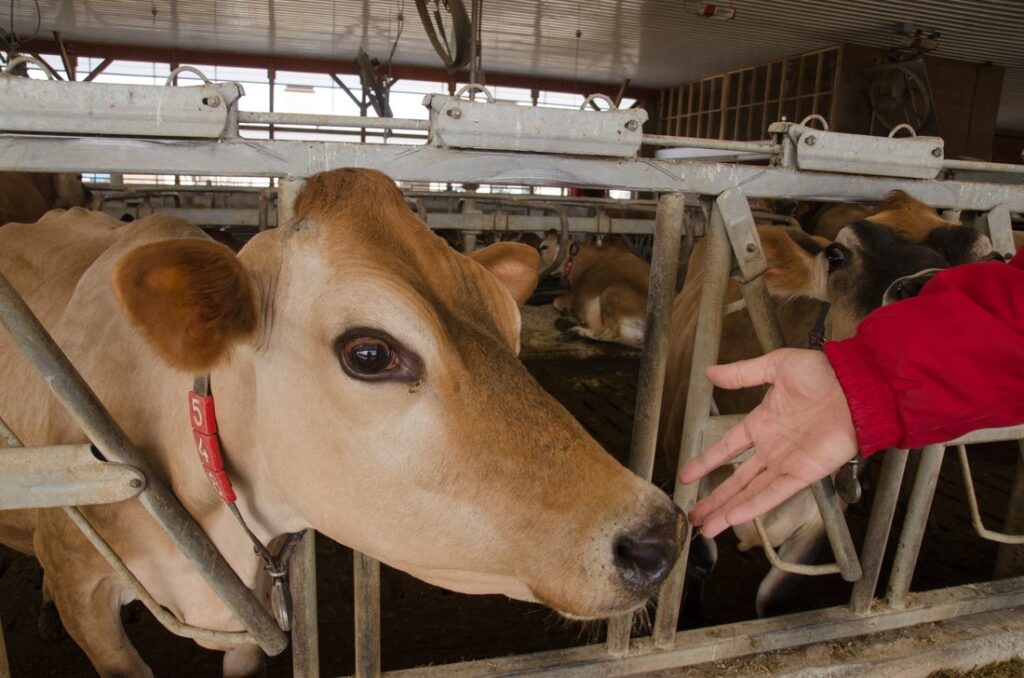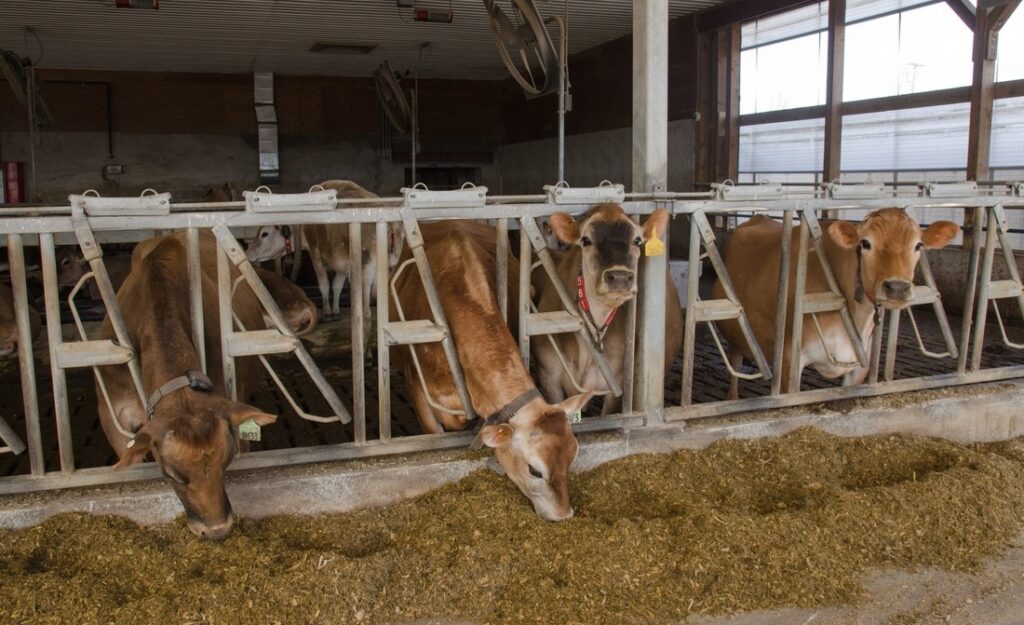
Roberto Laurens petting a High Lawn Farm Jersey cow. [Image by Keith Toffling]
High Lawn Farm is a family-owned dairy farm located in Lee, MA in their 97th year of operation that produces all natural milk free of artificial hormones. High Lawn Farm is owned by the Wilde family, who have lived on the farm and owned it for three generations. Roberto Laurens, pictured below, is the General Manager at High Lawn Farm and has been in this role for 15 years. Roberto has over 30 years of experience managing farm operations and working with dairy herds, not only in the United States, but Colombia as well. Speaking to Roberto, it was clear that he is an expert at what he does.
The farm owns 3,800 acres of land, 900 of which are protected woodland forest to support local wildlife. High Lawn Farm also has 1,600 acres of open pasture and cropland and grows nearly all the grass, corn, and alfalfa they need to sustain their herd during the winter. For the summer months, this local dairy farm has 200 acres of grass for their cows to graze on. “It is a spectacular environment in which to raise our herd and produce our milk products,” Robert shared.

Roberto Laurens, General Manager of High Lawn Farm. [Image by Keith Toffling]
Most dairy farms raise Holstein cows because they produce higher quantities of milk than other breeds. However, High Lawn Farm raises Jersey cows for the quality and taste of milk they produce. Jersey cows are small, friendly, and brown colored, compared to the black and white Holstein cows. Roberto explained that, “compared to other major dairy breeds, Jersey milk contains 20% more Calcium, 17% more protein … and contains more Vitamins A, B1, and B2.” This makes Jersey milk healthier and more flavorful than traditional milk. Humans are also able to digest the proteins in Jersey milk much easier than Holstein milk.
Raising Jersey cows is less resource intensive than Holsteins, making it more environmentally sustainable. Jersey cows produce 30% less milk than Holstein cows, but only weigh about half as much. Therefore, Jerseys eat less food, drink less water, and produce less waste, but produce milk more efficiently. Raising Jersey cows instead of Holstein cows can reduce water and land usage, fuel consumption, waste production, and greenhouse gas emissions associated with raising cattle. Roberto emphasized that High Lawn Farm is proud to “use less resources to produce a higher quality product.”

High Lawn Farm’s processing facility where they bottle all of their products themselves. [Image by Keith Toffling]
Most dairy farms in the United States, including High Lawn Farm, are finding it increasingly difficult to find workers to milk their cows. “It is very hard to find people who want to work in farms and want to be here every day at three or four in the morning including Saturday, Sunday, and holidays,” Roberto shared.
In response to this lack of labor, High Lawn Farm installed a robotic milking system that milks two cows at a time with no human labor required at all. “It is a very effective system, and extremely friendly to the cows,” Roberto explained. The cows have been trained to use the robots, and therefore can enter the milking system whenever they please. Additionally, the system monitors the cows health, recording her weight, levels of activity, and food intake. Roberto is notified if any of the cows need special attention.

High Lawn Farm Jerseys eating grass, alfalfa, and corn grown on the farm. [Image by Keith Toffling]
High Lawn Farm is a beautiful, impressive, and unique operation. Roberto and the rest of the crew at High Lawn take great care to provide the highest quality product possible in a sustainable and ethical way. High Lawn Farm milk is served in Berkshire Dining Commons.
Thank you so much to Roberto Laurens and High Lawn Farm for speaking and working with us. For more information about High Law
